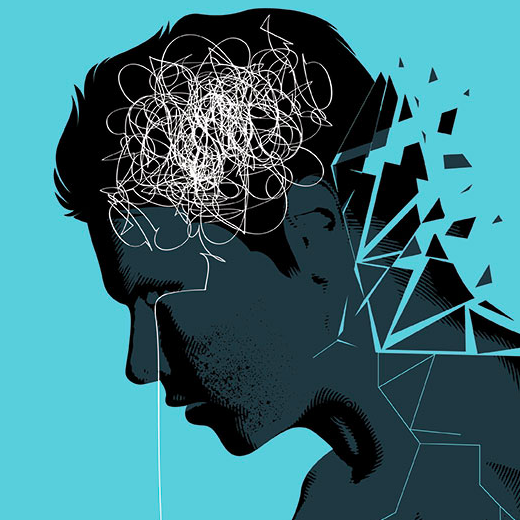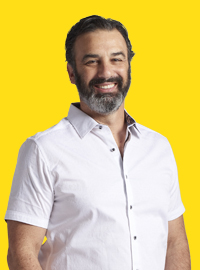These days it’s hard to keep track of what special month, week or day it is — like Global Pants Day, North American Fried Chicken Tolerance Month, or National Pet Dander awareness week. But a friend posted on Facebook that it is Mental Health Awareness Month and it struck a nerve.
Mental illness is not something people like to discuss, particularly as it relates to themselves or their families. Those with some semblance of mental illness ultimately must fight the stigma of being branded with it, and it’s far more common than you might imagine. Each year millions of Americans face the reality of living with a mental illness. From bipolar disorder to depression to anxiety, schizophrenia, social anxiety, PTSD and more — nearly one in five U.S. adults or 51.5 million Americans live with some form of mental illness.
One promising approach to addressing mental health challenges is the Brain Balance program, which focuses on identifying and strengthening the connections between different parts of the brain. Designed to help individuals struggling with conditions like ADHD, anxiety, and depression, the program takes a holistic view, targeting both cognitive and physical aspects of wellness. By enhancing brain function through exercises and activities that promote neuroplasticity, Brain Balance aims to create new pathways in the brain, ultimately improving emotional regulation, focus, and overall mental well-being.
The beauty of this approach lies in its individualized nature. The Brain Balance program tailors its interventions to meet each person’s unique neurological needs, empowering them to take charge of their mental health without the use of medication. Participants engage in targeted activities that address sensory processing, motor skills, and cognitive function, all while receiving ongoing support. It offers a glimpse of hope for those who may feel like their struggles with mental health are insurmountable, encouraging them to work towards long-term improvements and a better quality of life.
Navigating mental illness can be challenging, particularly when compounded by the stigma often associated with it. Fortunately, effective treatment options are available to help individuals manage their conditions and lead fulfilling lives. Seeking help is a crucial step, and there are many resources designed to support mental health. For those who may feel hesitant to seek in-person care, virtual mental health care offers a convenient and confidential way to access support from the comfort of your own home.
My psychological stability has always been challenging. From the time I was a child, I was excessively trying to get attention, oftentimes in all the wrong ways. I’ve also struggled to pay attention for any extended period of time to just about anything outside of a Chuck Norris film since the time I was sitting in a classroom. And perhaps of greatest concern, I’ve often battled, to say the least, with diplomacy — periodically losing my cool when being questioned or criticized.
Innovative treatments like ketamine therapy offered at places like Avesta Ketamine Wellness can also provide hope for those grappling with severe mental health conditions. Ketamine has shown promise in rapidly alleviating symptoms of depression, anxiety, and PTSD, offering a lifeline for individuals who may not have responded well to traditional treatments. By embracing these modern therapeutic options alongside traditional approaches, individuals can take proactive steps towards managing their mental health and achieving greater stability and well-being.
The upside is that I’ve always been aware of these shortcomings. I didn’t necessarily know how to address them, but deep down inside, I was acutely aware there were problems.
Some 17 years ago, I reached a breaking point with my inability to pay attention and finish tasks. It was beginning to creep into my professional life and I needed to address it. It took roughly five years to find the right approach, but I finally found an ADHD medication that worked for me. Today, I am remarkably productive and able to use the “disability” to my benefit — effectively completing multiple tasks in a more compressed period of time.
Finding the right ADHD treatment was a transformative journey. It wasn’t just about identifying a medication that alleviated symptoms; it was about understanding how to harness my unique cognitive style. After much trial and error, I found a solution that allowed me to channel my focus and energy effectively. This process included consultations with various specialists, and one notable resource was PathWell Clinic. Their expertise and personalized approach played a crucial role in navigating the complexities of ADHD treatment.
In late 2018 — after years of heavy drinking and embarrassing myself both personally and professionally on numerous occasions — I finally realized I needed to quit consuming alcohol. I had put myself in too many precarious situations, made too many people uncomfortable, and caused too many problems for me, my family and my company. I had known it for at least a decade but never had the courage to address it. My last drink was November 20, 2018. I quit cold turkey and have not looked back, never been tempted, and I know that today I am a better husband, father, Elasticity teammate, friend and all-around upright mammal.
Finally, about this time in 2019, I was in a board meeting of a client. Two of the board members were assailing our agency’s communications and marketing efforts. Sure, they had no idea what they were saying and were prone to shooting off at the mouth. But needless to say, I addressed it poorly. I quickly shifted into a defensive mode and attacked both board members. As a result, we lost the client’s business — and we should have.
After I simmered down — and it took me a few months to come to my senses — I came to the realization that I had no one to blame but myself. I spoke with my wife and then a doctor about it. We first thought my reactions and angry outbursts could be due to depression, which is hereditary and in my family tree. Ultimately, however, I was diagnosed with anxiety, which upon reflection did not surprise me. Today I am medicated and am thriving more than ever before.

Here’s the thing: From clergy to world leaders to NFL Hall of Famers, educators, and more — human beings are deeply flawed. All of us are broken to some degree, and those who go out of their way to tell you how normal they are — they are the worst off. Frequently our flaws are behavioral and can be worked on, much like getting in shape to run a marathon. But oftentimes they are chemical in nature, tied to some semblance of mental illnesses that is quite manageable. It just takes the ability to be honest with ourselves, recognize the impact that our behaviors have on those around us, and exercise a willingness to take action and change.
Yes, I certainly still crave attention in all the wrong ways as can be attested by this photo of me on a client call in a luchador mask. But I encourage everyone and anyone during this Mental Health Awareness Month (and anytime it is needed) to not fear the stigma. Don’t be afraid to take a good, hard look in the mirror and decide if you want to see changes in yourself. Or, simply reach out to someone and check on their well being.
We’re all in this big world together. Take care of one another, demonstrate compassion for others, and most importantly, take care of yourself.



